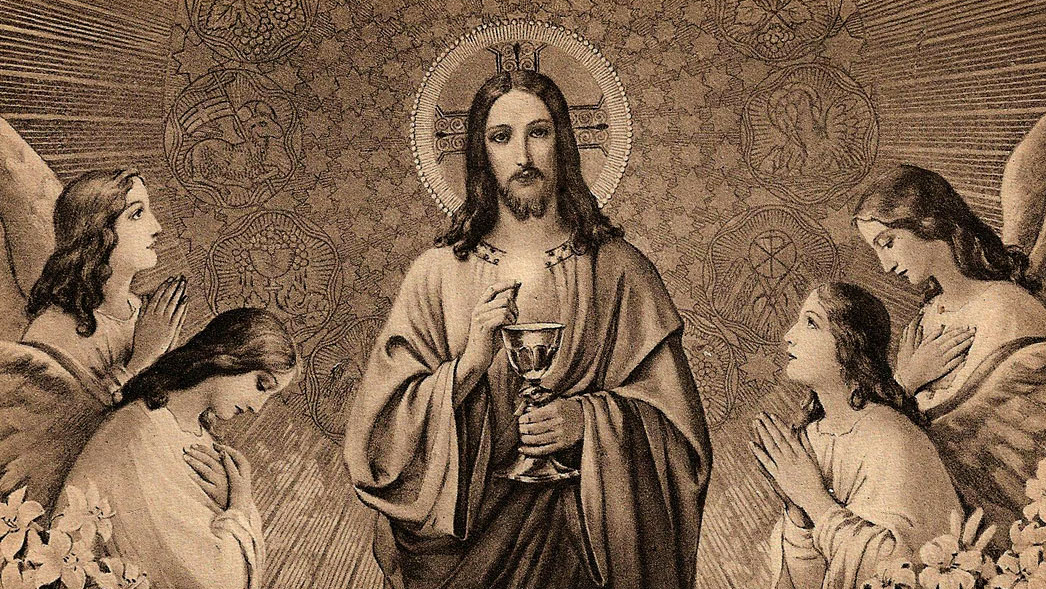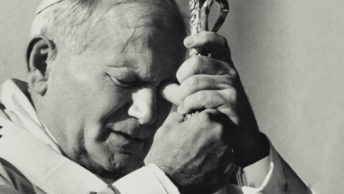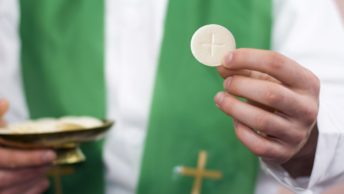We should know that no nuclear test can go unnoticed. Well, for us believers even the largest nuclear test would be child play when compared to the Resurrection, the most earthshaking, unrepeatable event in the history of the universe. Its shockwaves of grace will never end, but will be felt into eternity.
Looking at the different accounts about the Resurrection, we have to admit that God seems to have settled for a very mild display of power. He limited himself to an earthquake (Matthew 28:2) and quite a few might want to add the inexplicable imprint of the disfigured body of Jesus on the Shroud of Turin and the Sudarium of Oviedo. In keeping with his modus operandi in the New Testament, our heavenly Father chooses a very subdued way of vindicating his only-begotten Son Jesus.
If I were God and I had just restrained myself from rushing to my Son’s rescue when he cried out: “My God, my God, why have you forsaken me?” or even before, when he was tortured, scourged, crowned with thorns, nailed to a cross, I would have arranged for an overwhelming, breath-taking, irresistible, irrefutable display of power and glory for all to see. But Peter, who was in the thick of all that horrific mess of pain, human weaknesses and miseries before the Resurrection, points out God’s truly moderate, “commonplace” modus operandi. This man God raised on the third day and granted that he be visible, not to all the people, but to us, the witnesses chosen by God in advance, who ate and drank with him after he rose from the dead. (Acts 10:40-41)
Thus, we are forced to deduct that the apparitions of the Risen Lord are meant for those who love Jesus in their limited and imperfect, even erratic ways as to enable them to recognize him whenever he shows himself in the awesome signs of his love.
During the Easter season, in particular, we read about these apparitions. They aim at re-conquering the minds and hearts of Jesus’ disciples one-by-one and in small communities. The largest number of brethren to whom he appeared was just over five hundred. (1 Cor 15:6)
This detail proves the Father’s surprising choice of going about also the vindication of his Son in an unglamorous, quiet fashion in keeping with the concept of his Son representing him, visible and operative in real human flesh. For forty days, the Risen Lord is about gentle healing of deep wounds and about providing purposeful, grace-filled help to his fledging small communities. Through physical ordinariness such as walking, conversing, opening the Scriptures to, reproaching and even eating with them, the Risen Lord leads his disciples to adjust to the new reality that is incredibly beyond their former expectations of God’s intervention in human matters.
The two crestfallen disciples in this established passage (Luke 24:13-35) had grandiose expectations of Jesus: “But we were hoping that he would be the one to redeem Israel.”
All those who deserted him when he was arrested had similar expectations of a grandiose and glorious redemption of King David’s kingdom. We, ourselves, might be guilty of conceiving God as the convenient Almighty Fixer of whatever we deem wrong with our society and with the world. Routinely, habitually, we ourselves might pray to God not as Jesus taught us but with a clear purpose in mind and silently expect him to adapt his modus operandi to our wishes and likings, rather than embracing the way of glory through the cross: Then he said to all, “If anyone wishes to come after me, he must deny himself and take up his cross daily and follow me. (Luke 9:23)
If we have slowly “immunized” ourselves against the radical challenges of the Gospel while thinking that we can hold sway over God and, then, our expectations of him are dashed, we might regress to former times before the message of the Lord Jesus could flood our minds with its light and enkindle our hearts. But this choice would be hardly something new: in John 21:2-3, we see that after the debacle of the cross, Simon Peter and another six disciples of Jesus regressed back to their former way of life as fishermen.
Of course, if we are even slightly familiar with the Gospel we would guess that without the Lord these pitiable disciples were bound to fail miserably. And they did. Once the flame of hope in the prophet mighty in deed and word before God and all the people was extinguished the two disciples mentioned in today’s passage leave Jerusalem and try to find shelter and a degree of normalcy in their familiar village of Emmaus.
But all the apparitions of the Risen Lord prove that he keeps accurate track of all our wanderings and flights; and shows himself exactly wherever we are smarting in our tears, shattered hopes, hurts and darkness. His is more than the closeness we can expect of a real friend; his is the power-packed closeness of the One who is the Light of the world, the One who patiently interprets for us all that we had failed to embrace from the Scriptures about God’s modus operandi, God’s humble and unassuming ways.
The lesson we can learn today has all to do with realizing that the first place we can expect to find the Lord is precisely right where we think he has abandoned us and let us down. As the lesson continues we realize that right amid our tears, darkness and pain, the Lord’s closeness becomes so reassuring and so comforting that we cannot live without him any longer! “Stay with us, for it is nearly evening and the day is almost over.”
If we are humble enough to recognize our foolishness in conceiving God as a gigantic vending machine of heavenly favors and our density in preferring our ways to his ways, we should repeat this prayer often, with deep sincerity. I am sure, absolutely sure that we would hardly be able to endure the burning sensation caused by his words in our hearts and we would recognize him in his unique, “signature” gesture of offering himself to us as broken bread out of boundless love.
We would become comfortable with adopting wholeheartedly the Father’s ways as taught by Jesus; and we would be willing to reciprocate so much love because we would be driven by the irresistible power of the Holy Spirit, the Risen Lord’s most potent Gift.








